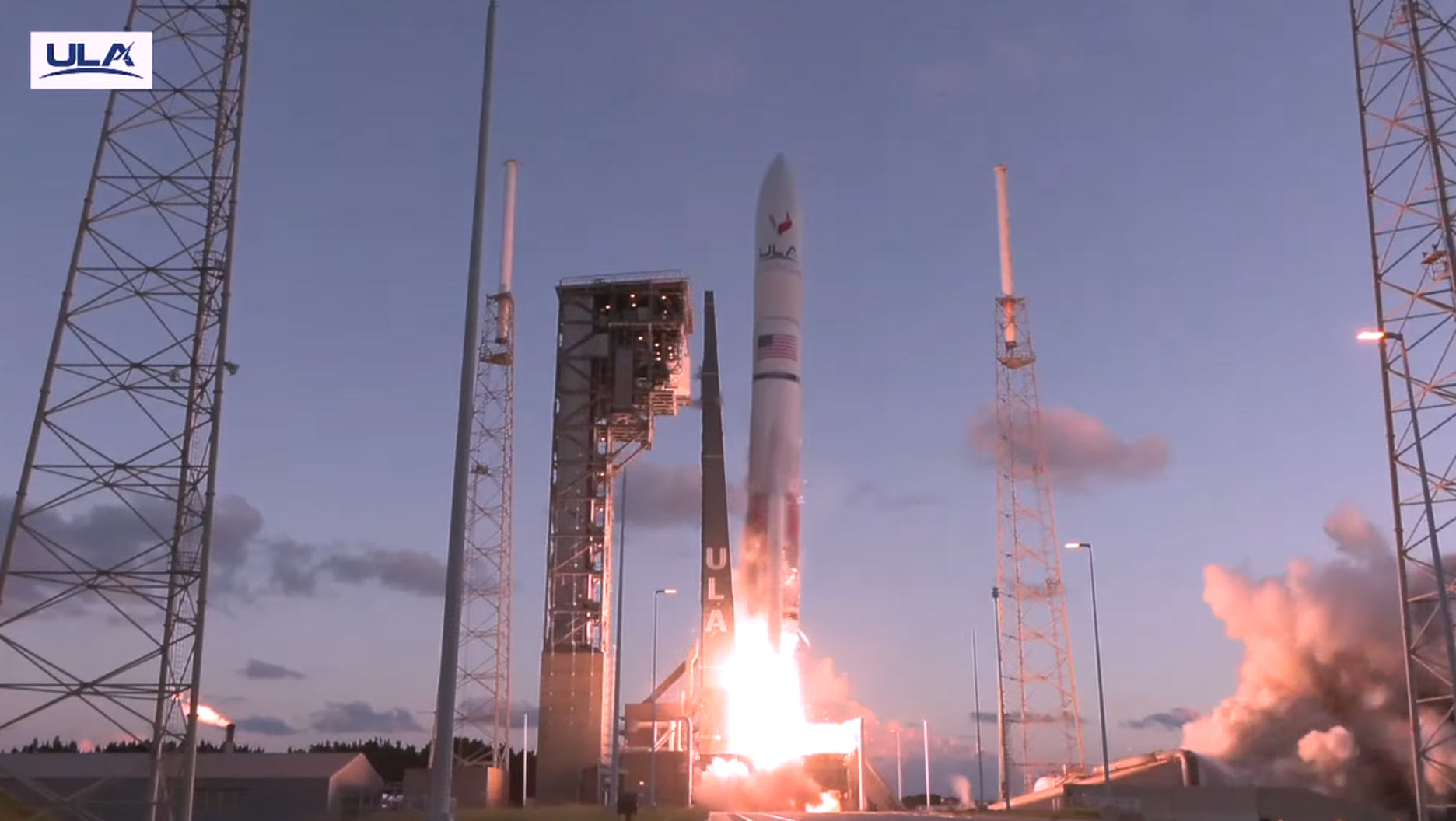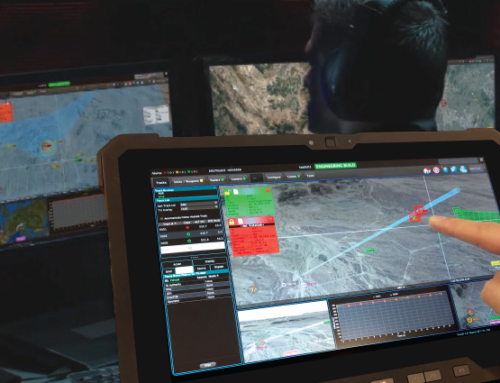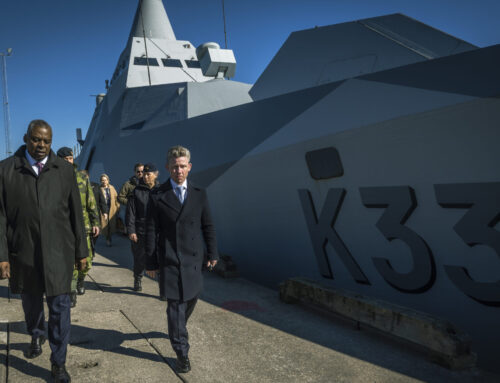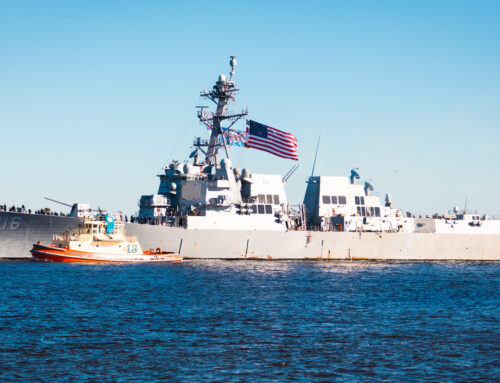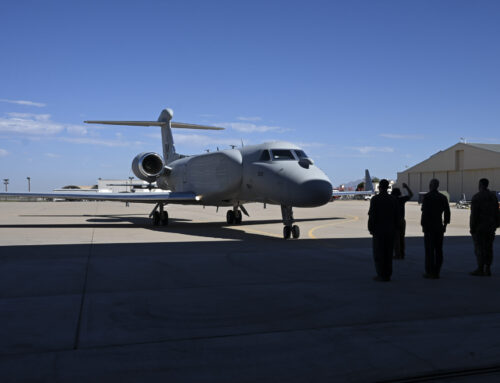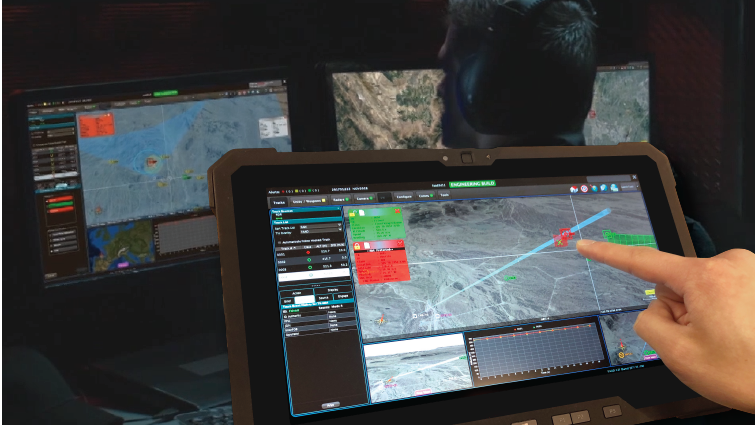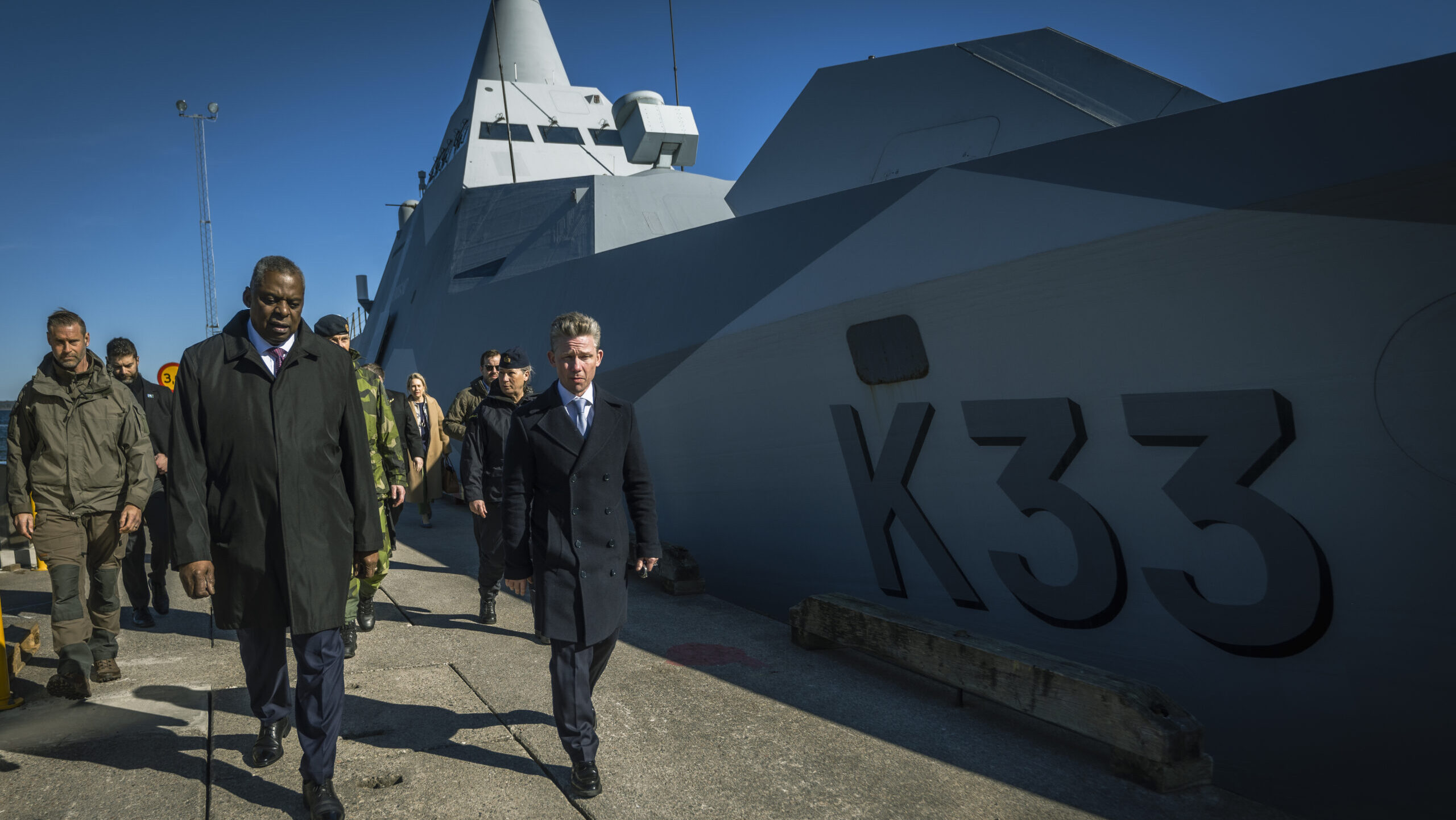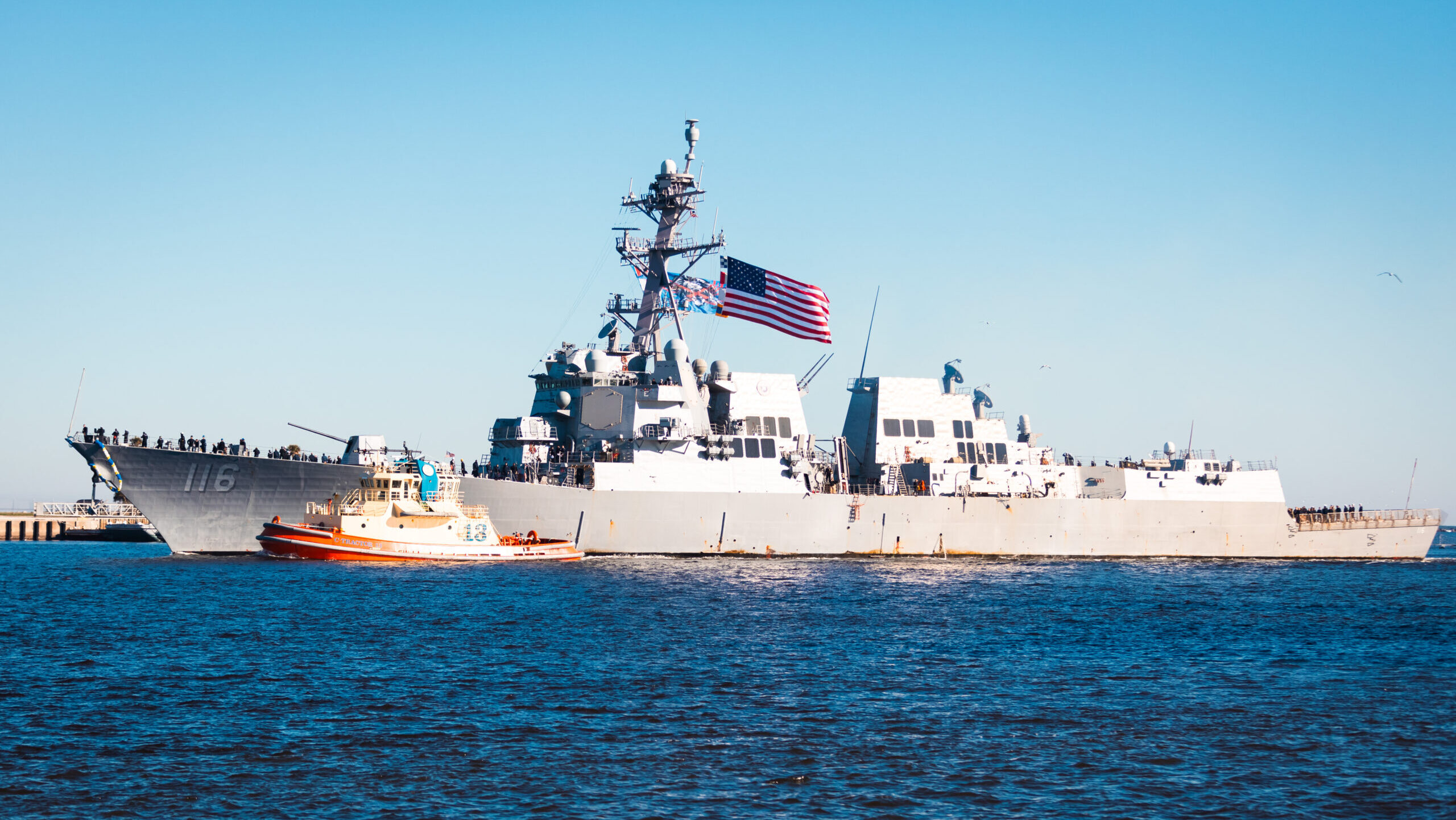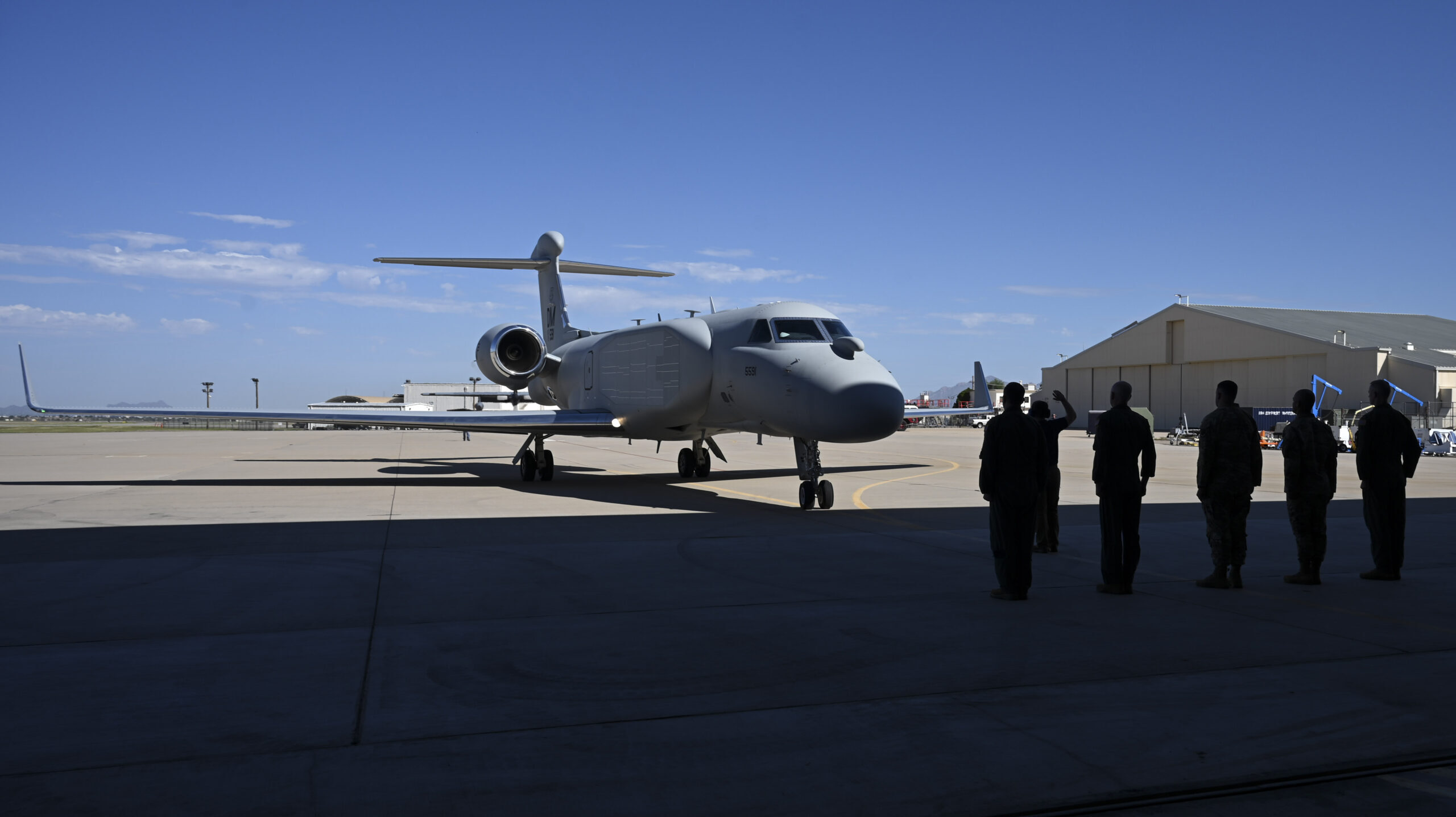ULA launches its Vulcan rocket on Oct. 4, 2024. (Screengrab via ULA livestream)
WASHINGTON — Following its launch this morning, United Launch Alliance’s Vulcan Centaur heavy-lift rocket could be on its way to being certified by the Space Force to launch critical national security payloads under its National Security Space Launch (NSSL) program.
While the final approval for Vulcan awaits a Space Force review of the technical data from the launch — including what appeared to be a mid-launch anomaly — a successful launch was the critical hurdle for ULA as two “certification” launches are required for any rocket to be given a thumbs up to fly NSSL missions.
The first Vulcan launch was in January, nearly four years later than originally scheduled, and Pentagon officials have been anxiously awaiting today’s success, concerned about military payloads backing up on the ground. Today’s launch also came after about a month’s delay, with ULA CEO Tory Bruno back in June saying the company was planning a flight in early September.
The launch was first briefly delayed by a technical issue, and then during the launch some material unexpectedly appeared to come off one of the boosters, but the flight did not appear effected. Bruno addressed the issue on the ULA’s webcast, saying the launch put its payload into space where it intended and the trajectory was “nominal throughout.”
“We did, however, have an observation on SRB [solid rocket booster] number 1, and so we will be off looking into that after the mission is complete,” he said. “Other than that the flight was nominal.”
Bruno appeared confident whatever the incident was, it wouldn’t stand in the way of ULA’s NSSL certification. “For ULA, we designed this rocket for the national security mission space. Completing the second certification flight successfully allows us to begin those missions that are urgent and important to the country,” he said.
A failure to certify would put the Space Force between a rock and a hard place regarding NSSL launches.
ULA and SpaceX were contracted by the NSSL Phase 2 program in 2020, under an indefinite delivery/indefinite quantity award covering all Space Force and National Reconnaissance Office launches between 2022 and 2027. (The NRO is responsible for the nation’s spy satellites.)
ULA was awarded a 60 percent share of all the launches. While most of those were slated for its Atlas V and Delta IV Heavy rockets, both of those have been retired from military service. Vulcan has two national security launch missions on its manifest for this year, USSF-106 and USSF-87.
If the certification doesn’t go through, Space Force would have had to switch those missions to SpaceX — the only other launch company currently certified to fly critical payloads under NSSL.
Not only does SpaceX already have a pretty full manifest for its Falcon 9 and Falcon Heavy lifters, but Defense Department officials and some members of Congress have been fretting about ceding a national security launch monopoly to the company’s unpredictable owner, Elon Musk.
Further, ULA along with SpaceX and Blue Origin on June 13 won spots to compete for a total of $5.6 billion in contracts for launches to low Earth orbit under what the Space Force calls Lane 2 of the NSSL Phase 3 program covering launch orders of must-go payloads from fiscal 2025 to 2029, with an option for another five years of launch orders. The Space Force orders launches two years in advance.
But Blue Origin’s New Glenn rocket has yet to make its maiden flight. Delays in its development prompted NASA to remove its two small Mars exploration satellites, called Escape and Plasma Acceleration and Dynamics Explorers (ESCAPADE), from New Glenn’s manifest for fears that the company could not meet the required Oct. 13-21 launch window, according to a Sept. 6 report in Space News. (Spacecraft flying to Mars need to fly at specific times every two years to coincide with the Red Planet’s closest approach to the Earth.)
Blue Origin, owned by Amazon billionaire Jeff Bezos, now intends to attempt its first flight, and first NSSL certification flight, in November.
Should Vulcan get the Space Force go-ahead, both planned NSSL missions are expected to fly by the end of the year as planned.
Lee Ferran contributed to this report.


